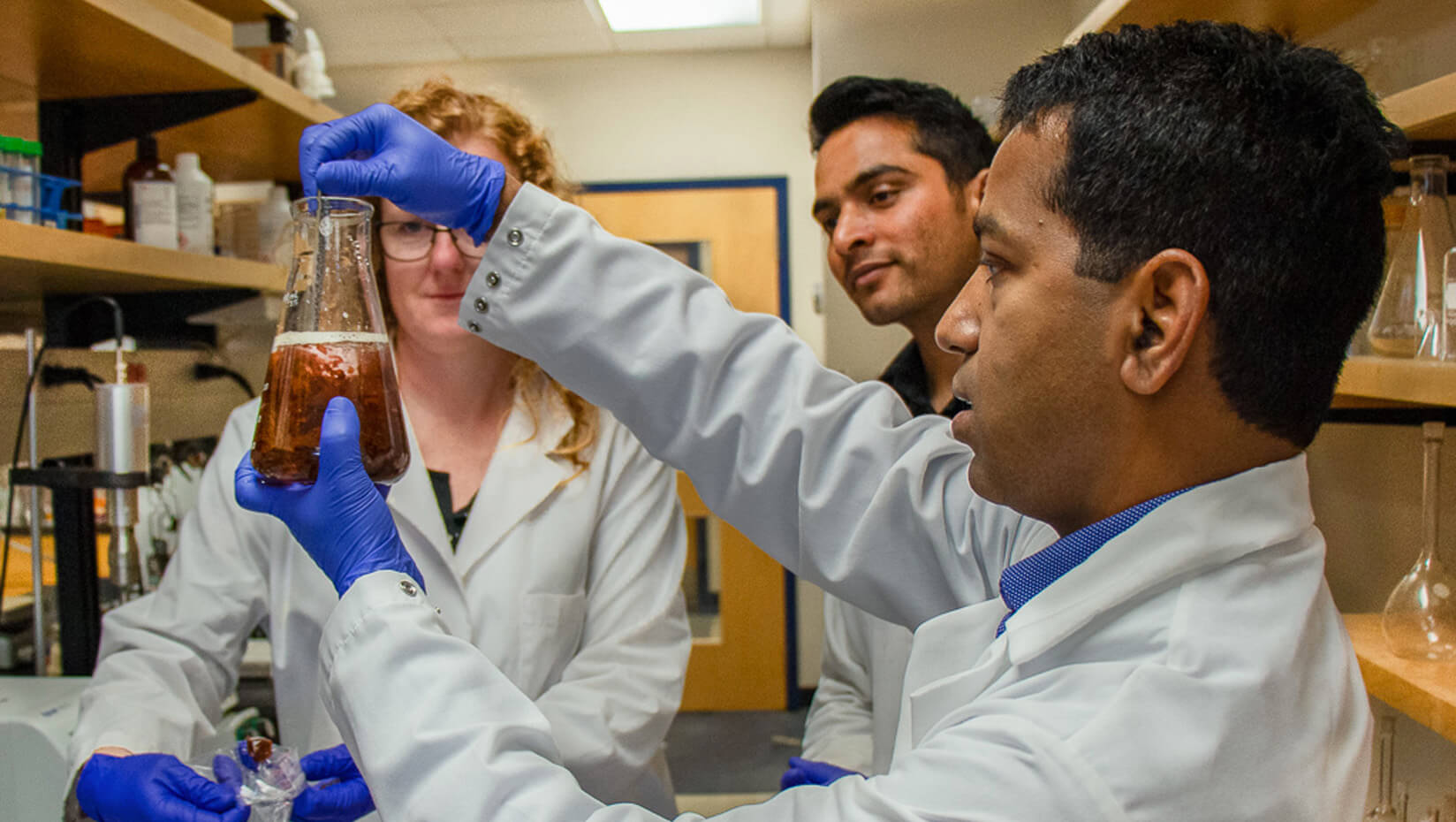
Nayak part of international team investigating health benefits of processed seaweed
Seaweed, which is gaining popularity as a superfood in the United States, has several health benefits, but whether they are retained in products that have been processed in different ways remains unclear.
Research by an international team including the University of Maine aims to develop and optimize processing and preservation techniques for seaweed to retain the bioactive compounds and improve their bioavailability in the human body.
Balunkeswar (Balu) Nayak, associate professor of food processing at UMaine, is collaborating with researchers from the National Food Institute, Technical University of Denmark (DTU Food) and Chalmers University of Technology in Sweden on the 1.5-year project.
The project was recently awarded around $140,000 from Ekhagastiftelsen, a Swedish foundation that aims to increase product stability and promote human health by supporting the development of better food, natural medicines and healing practices, and to support research for a healthier way of life.
Seaweed is high in bioactive antioxidants and minerals; however, contaminants such as heavy metals can be accumulated if waters are polluted. Understanding the fate of these compounds is extremely important for a sustainable human consumption of seaweed, according to the researchers.
The team will study the health-benefiting bioactive compounds in seaweed from Maine, Sweden and Denmark. They will follow the compounds during commonly used industrial processing steps as well as in the gastrointestinal tract after consumption. This will be evaluated in a risk-benefit analysis considering the legislation and nutritional recommendations.
The researchers aim to make the results available for consumers and national food authorities in Scandinavia and the United States.
Contact: Elyse Catalina, 207.581.3747, elyse.catalina@maine.edu
